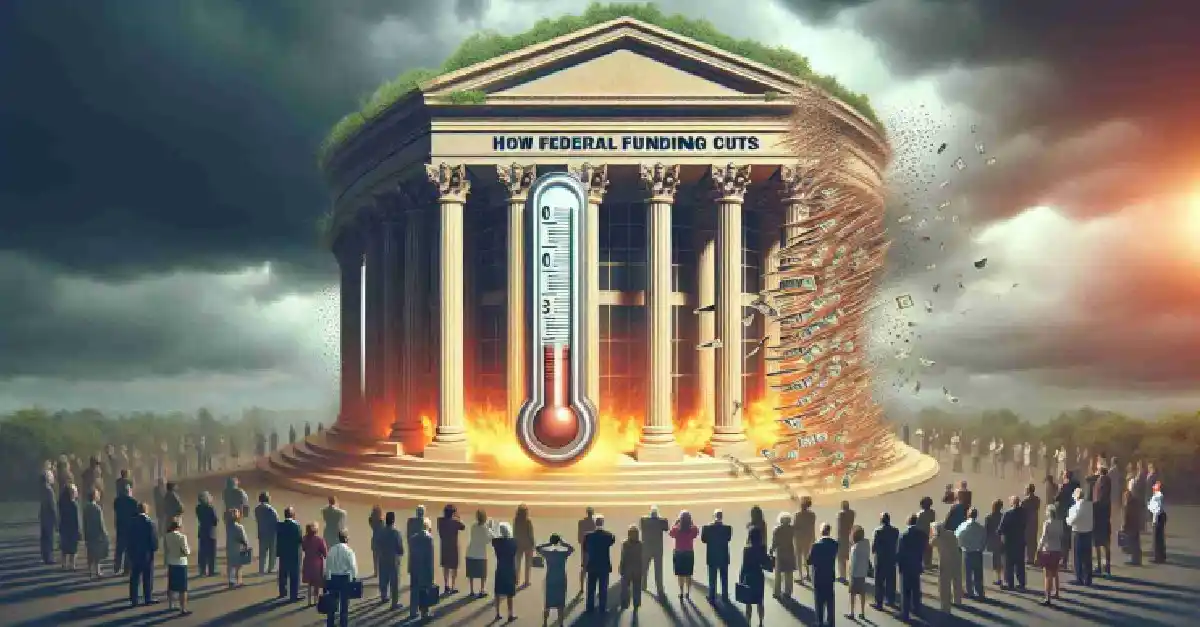
EducationToday News
February 21, 2025 at 01:40 AM
https://educationtoday.co/blog/blog-details?id=2878&url=Federal-Funding-Cuts-Force-MIT-Northwestern-and-Other-Universities-to-Freeze-Hiring-and-Reduce-Spending
*Federal Funding Cuts Force MIT, Northwestern, and Other Universities to Freeze Hiring and Reduce Spending*
Top universities across the United States, including the Massachusetts Institute of Technology (MIT), Northwestern University, and Washington State University, are grappling with significant financial challenges due to ongoing federal funding cuts. These cuts, which have affected higher education and research budgets, could result in millions of dollars in losses, putting current and future research projects at risk.
Federal funding reductions have particularly affected research-driven institutions like MIT, which is losing over $100 million in federal support. In response to these financial pressures, MIT has implemented a hiring freeze for all non-faculty positions. According to reports from Forbes, the university assured that this freeze would not impact faculty members and that exceptions would be made for essential personnel. However, the hiring freeze is expected to affect various departments and research initiatives, adding to the challenges faced by the institution.
Tightened Budgets and Increased Scrutiny at Major Universities
As federal funding continues to shrink, universities like MIT and Northwestern face mounting difficulties managing their finances. One of the main challenges is the capping of research grant payments, coupled with reduced support from agencies like the National Institutes of Health (NIH). Administrators have been forced to implement strict measures to control spending at Northwestern University. On February 12, 2025, the university announced that raises, hiring, and other new payments would be subject to central review. According to university officials, these steps were necessary to position the institution to navigate the current financial landscape.
Similarly, Washington State University has been feeling the pressure. On February 14, 2025, Provost T. Chris Riley-Tillman shared with the university community that the leadership would begin reviewing the university's budget, focusing on "scenario planning for near-term futures." This includes the possibility of a hiring freeze, reduced funding for core programs, and limitations on travel expenses. The university prepares for various financial scenarios, including permanent cuts to essential programs.
Impact on Broader University Communities
Other universities nationwide must also take drastic steps to adjust to the ongoing funding crisis. North Carolina State University, for instance, has paused all hiring activities as of February 14, 2025. This decision was made due to concerns over potential financial impacts arising from the Trump administration's Executive Orders and the possibility of a government shutdown. Like other institutions, North Carolina State University is bracing for the uncertain financial future created by federal budgetary constraints.
As universities across the U.S. announce hiring freezes and reduce non-essential spending, the outlook for American research universities remains uncertain. These institutions, which play a crucial role in advancing scientific research and fostering academic excellence, are at a pivotal point. The future of critical research programs and academic disciplines hangs in the balance, with much of their fate tied to political decisions and ongoing budgetary debates in Washington.
Preparing for Fiscal Conservatism and Long-Term Challenges
As these budgetary cuts continue to unfold, higher education finance experts are urging universities to prepare for a period of fiscal conservatism. The full impact of the funding cuts may not be immediately apparent, with some universities estimating that the effects may take months or even years to materialize fully. In the meantime, institutions are being forced to make difficult decisions about their priorities and how to balance the need for financial sustainability with their commitment to academic excellence and innovation.
For students, faculty, and staff at these affected institutions, the uncertainty surrounding funding cuts raises essential questions about the future of higher education. The ongoing financial strain is creating an environment where universities must make tough choices that will shape the landscape of American higher education for years to come.
As these universities work to navigate these fiscal challenges, the impact on research, academic programs, and even job opportunities within these institutions is becoming more pronounced. It remains to be seen how these financial struggles will shape the future of American higher education and whether policy changes will be implemented to provide much-needed relief to these institutions.
*For more details visit*
https://youtu.be/j6a2XRpC8p0
https://www.theenn.com/video-01fac4244.html
